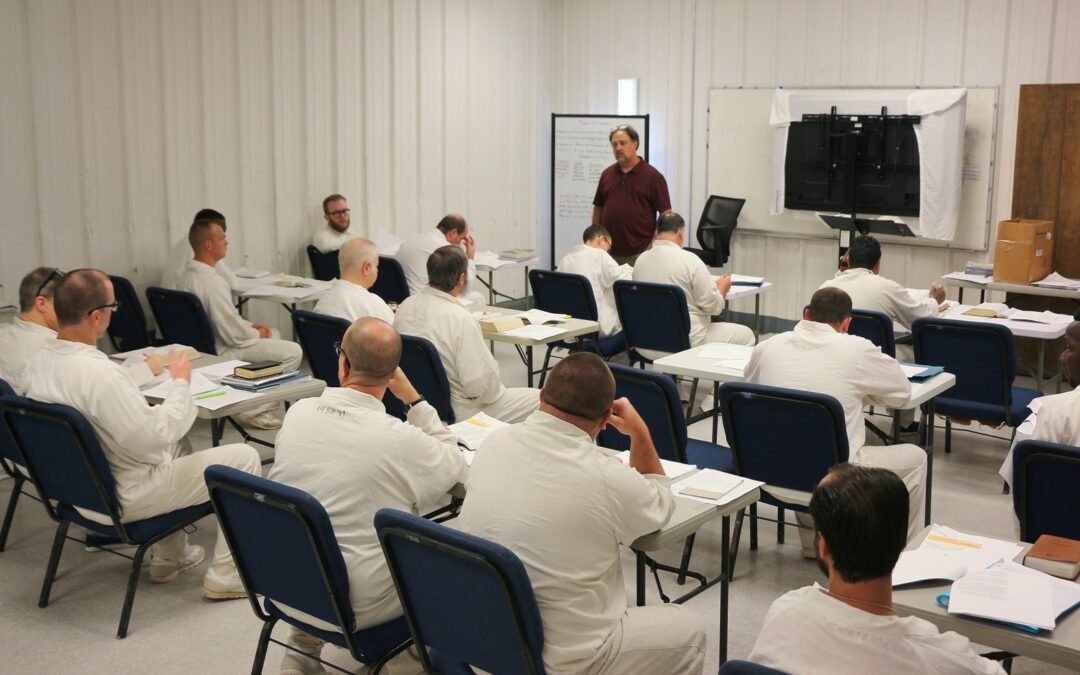At Crossroads, our Bible study lessons are the central component of our correspondence ministry that connects students and mentors as they study God’s Word together. Our student programming team works hard to develop lessons that inspire our students to apply the Gospel to their lives. The team wants the content and questions to spark meaningful reflections that help our mentors build Christ-centered relationships with students. Developing new content and updating our courses takes years as staff members work through a process of revising lessons, piloting revisions with students and mentors, reworking lessons based on feedback, and publishing for full distribution.
John Byrne, director of student programming, was given a rare chance to speed up the piloting process when he was allowed to review lessons in a classroom for three days with twenty-five current and former Crossroads students. The opportunity arose from a collaboration with a faith-based reentry program called Pathway to Freedom, Inc.
The students at the J. Aaron Hawkins Sr. Center in Wrightsville, Arkansas, offered their feedback on the clarity and relevance of the lessons contained in the latest update to our Great Truths of the Bible course. Great Truths of the Bible is the oldest course in our curriculum, and it was originally written at a reading level that is too high for the majority of people in prison today. The 2022 update embraces the fact that our student population is much broader than in decades past, and they want material that is directly applicable to their lives.
Additionally, the revisions support the student-mentor relationships that make Crossroads unique among correspondence Bible studies for incarcerated men and women. Questions have been rewritten to emphasize personal reflections that open the door for mentors to respond. The changes to the questions were based on feedback from mentors. Mentors have long desired deeper dialogue and more clues for how to write relevant letters of encouragement.
“To be certain, we are staying true to the history of the course, so we wanted to make sure all fifty great truths in the original course were included,” John said, noting that the revision combines some of the components, resulting in a list of thirty truths while maintaining the core concepts. “We also wanted to make sure the questions were written in such a way that the responses could provide mentors with more insight into their students’ lives and their Christian walk. The rewrite also specifically addresses the application of the Bible to their day-to-day lives based on the whole idea [in adult learning theory] that we learn as we do.”
Both mentors and students have responded favorably to the revised questions. They say the questions allow students to reflect on their lives and provide insight that will enable mentors to provide more relevant encouragement and feedback. Students have also overwhelmingly said that they want a one-on-one mentor assigned to them earlier in the program, and we are working to implement that in mid-2023.
“The requests for ways to build deeper connections and richer dialogue speak to the heart of our mission and tell us we are doing meaningful work that enriches students and mentors,” John said. “It is evidence that Christ-centered relationships really do change everything.”


